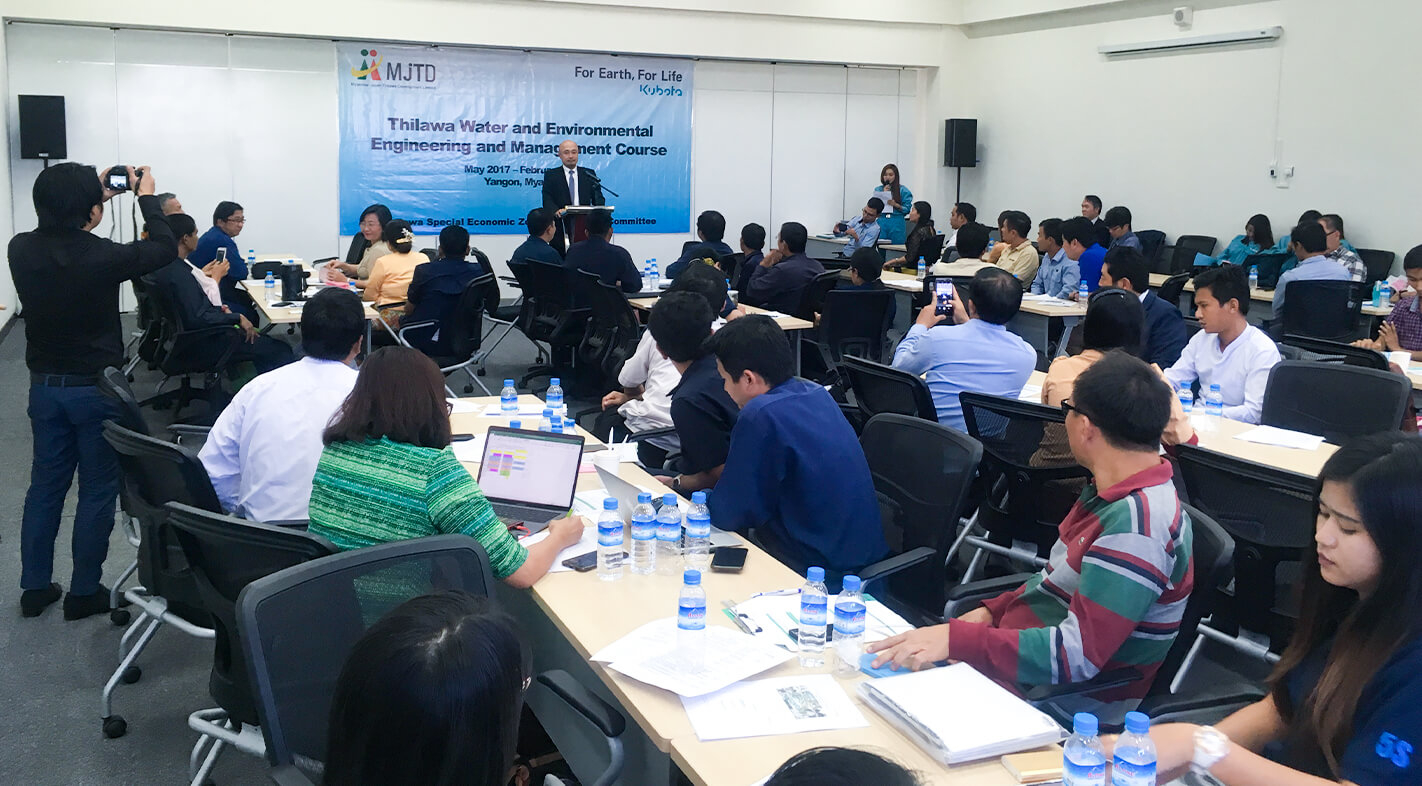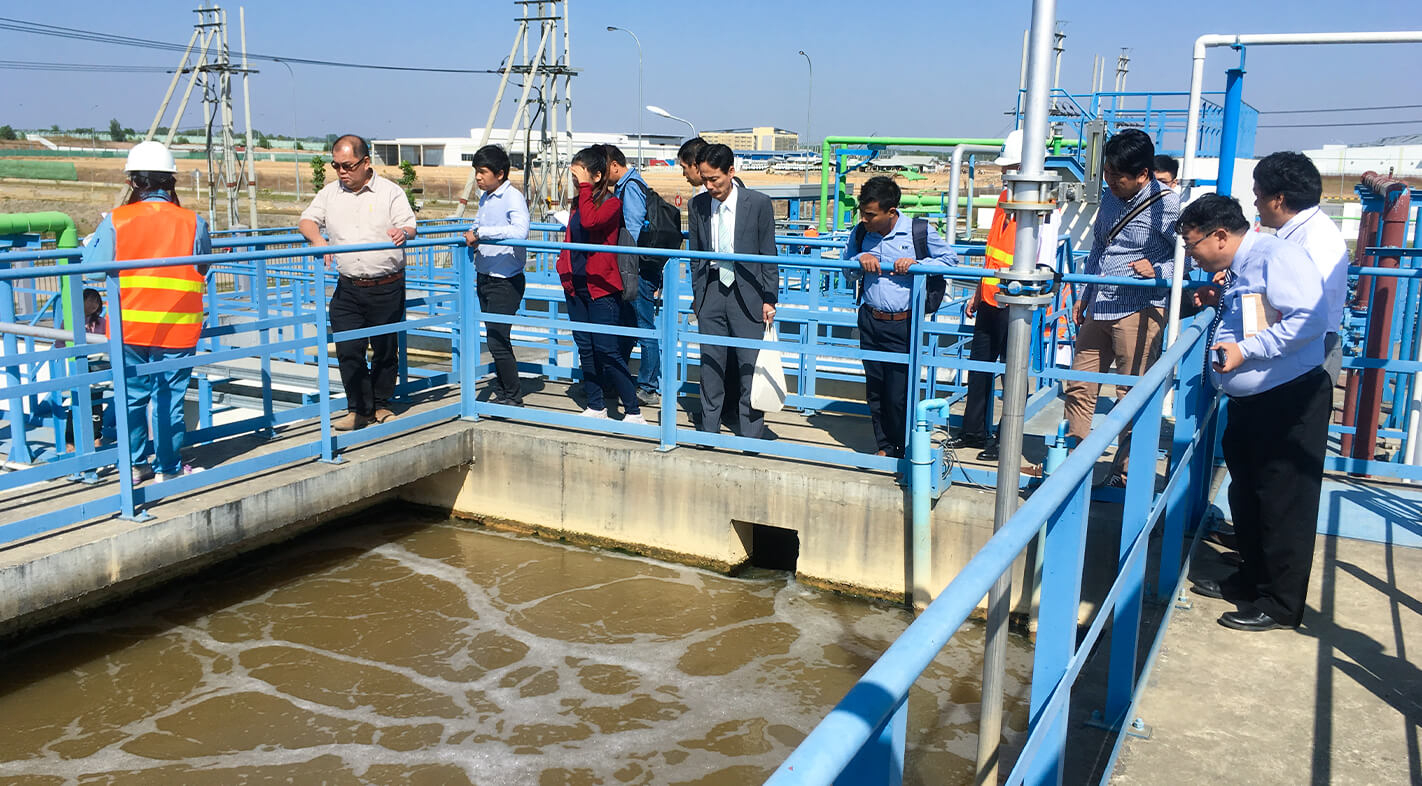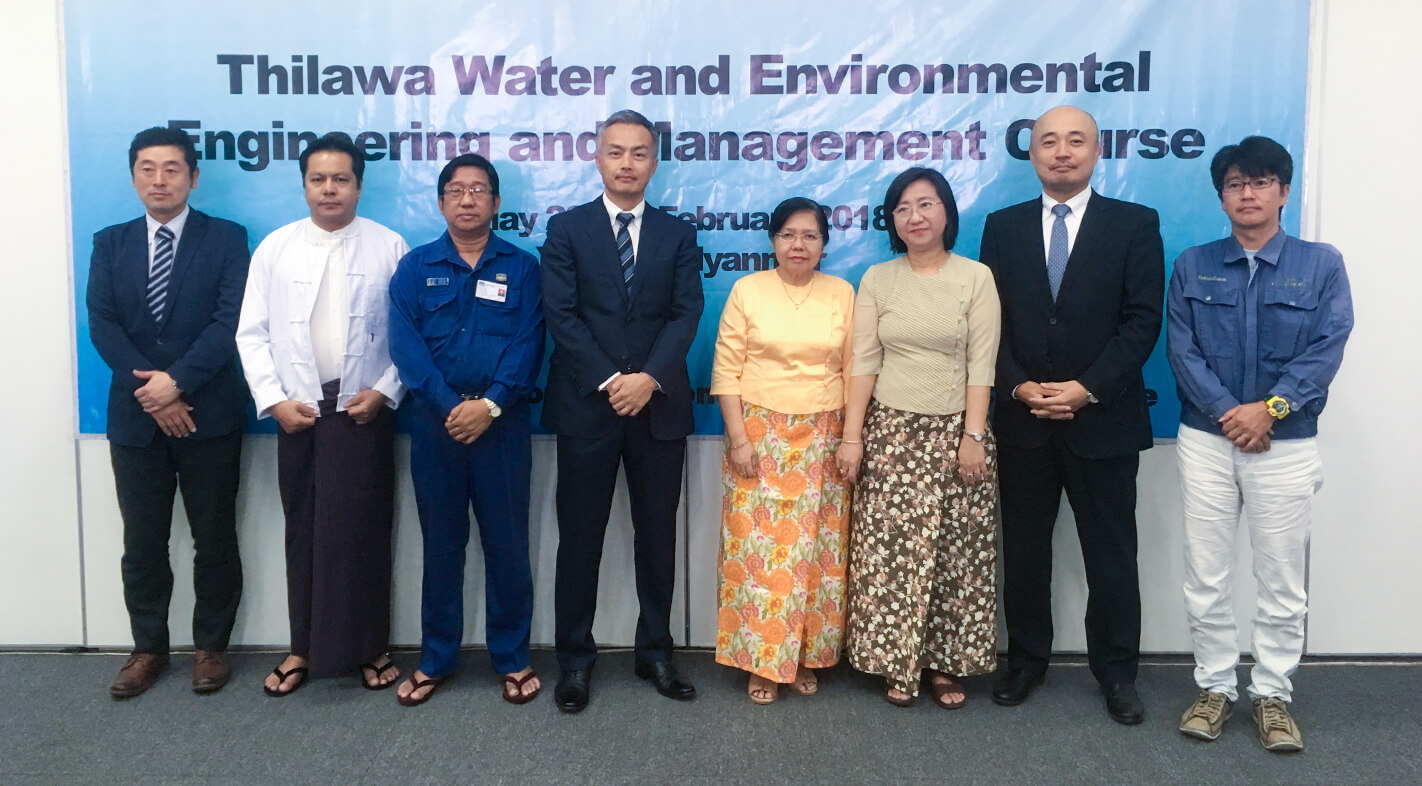Thilawa Water and Environmental Engineering and Management Course

- Water and the Environment
Supporting the Development of Core Engineers for Myanmar's Water and Environmental Infrastructure
Water and environmental infrastructure development is an indispensable initiative for the further growth of Myanmar. Kubota is contributing to the construction of sustainable water and environmental infrastructure in Myanmar by holding a course to train core engineers who will play a key role in that initiative.
The Thilawa Special Economic Zone, located on the outskirts of Yangon, Myanmar's largest city, was constructed as part of the Japanese government's assistance to Myanmar and symbolizes the ideal state of Myanmar in the future. Kubota has held the Thilawa Water and Environmental Engineering and Management Course in this locale to train core engineers in water and environment-related technologies, draws up the course programs, and sends visiting lecturers.
The close relationship between Myanmar and Kubota, which began with the export of agricultural machinery in 1953, has continued uninterrupted to this day. In the fields of water and the environment, Kubota has contributed to water supply development by utilizing its strengths over a wide range of solutions from water supply to sewage, such as delivering water supply and sewage treatment facilities to the Thilawa Special Economic Zone.
However, it cannot be said that infrastructure development is sufficient from the standpoint of supplying safe and clean water. The construction of sustainable water and environmental infrastructure is also essential for the further social and economic development of Myanmar. This course is an effort aimed at fostering human resources who will play a central role in this initiative, and it was held a total of six times between 2017 and 2018 for engineers from governmental institutions, graduate schools, and private companies. Based on Kubota technologies and experience in the water and environmental fields that have been amassed since the company’s founding, the programs on water supply and sewage treatment, industrial wastewater treatment, and waste treatment offered in this course have been attended by approximately 600 people.
By putting the wide range of technologies and experience it has improved in its water and environmental businesses to their best use, Kubota will continue to contribute to sustainable water and environmental infrastructure development that supports the lives and livelihoods of people living in Myanmar.

